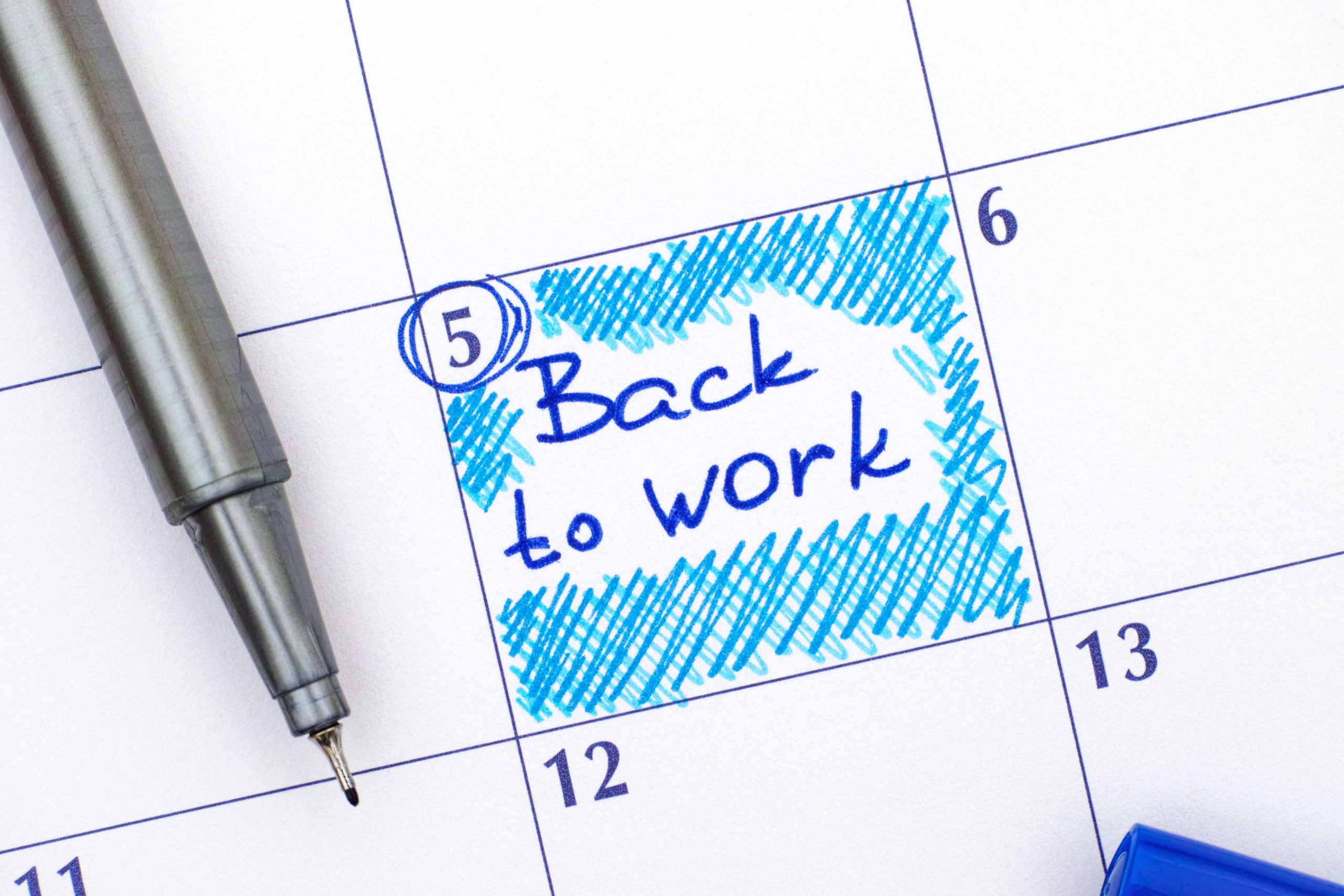
In order to prevent your brain freeze and meltdown following Boris Johnson’s ground breaking announcement this May , it is recommended that you distance yourself at least 2 metres from your television screen and ensure the sound is turned to the lowest setting.
Allow us to summarise the speech for you: “don’t go to work, but do go to work if you can’t work from home, don’t take public transport, but do ensure you get to work, don’t go outside, but do walk to work. And, after the half term don’t go to school, but do go to school”
Ensuring workplace health and safety
Upon returning to work, all important health and safety measures will continue to apply and there may be some additional cleaning arrangements made by your employer in order to ensure that you are returning to work in a safe and clean environment. If your workplace has been closed during lockdown then your employer may decide that it needs to be deep cleaned – but don’t panic if your workplace hasn’t been deep cleaned as there will be other measures put in place to ensure your safety.
You will probably here the phrase ‘wash your hands’ regularly by your employer and although it may sound repetitive and slightly annoying, it is just some of the measures put in place by employers following advice from both the government and the World Health Organisation, your employer should also provide you and your colleagues with hand sanitizer for when you may be unable to access a sink.
Along side the measures taken by your employer, you are also advised to take measures in the workplace to ensure your own safety and the safety of your colleagues. This can be done through using an anti-viral cleaner to wipe down all work surfaces, keyboards, till areas and even stationary items (because we sometimes unconsciously put pens in our mouths whilst thinking or accidentally drop them on the floor or lend them to colleagues to use).
Providing additional work equipment
In jobs where travelling to other company premises is needed, then your employer may have to consider additional equipment that may help you carry out your work safely. This may include measures such as booking remote meeting facilities that can ensure social distancing or setting up video conferencing so that your travelling is reduced but you are still able to have a meeting with others.
In workplaces that have a lot of contact with members of the public, such as retail, protective screens may be put up around the till area as a see-through wall between the cashier and the customers. Gloves and masks may also be provided in order to ensure that there is the least amount of contact between you and members of the public, but you should also be aware of cross contamination and always ensure that even if you are wearing gloves, to wash your hands regularly and clean and personal belongings in order to prevent this.
Although not considered equipment, employers may also arrange additional parking spaces in order to encourage their employees to avoid public transport and instead use other means of travel when coming into work.
If you don’t ask, you don’t get! If your employer has not discussed the additional equipment, they have put in place then you can ask for these to be put in place in order to ensure your safety.
Changes upon returning to the workplace
Once you return to work, you may notice several changes in shift patterns and the number of hours you may be asked to work. Employers may decide that in order to abide by the social distancing guidance recommended by Boris Johnson, it could be best not to call in all of their staff to work and that some members of staff may have to remain on furlough if they are unable to work from home – so even though you may be disappointed to not return to work with your favourite colleagues, it’s for the best!
Alternatively, your employer may decide to bring back all employees but change the working hours so that there will be less staff present during a working day in order to make social distancing easier where possible. Unfortunately for you, having fewer staff present at work will probably mean having fewer tea breaks.
You should also ask and remind your employer that as you have returned to work, you are no longer on furlough leave and that you should be returning to your full and usual pay!
Previously agreed holidays
Just because you may have been working from home, it does not mean that you don’t need a holiday!
Employees who have booked holidays prior to having to work from home, are encouraged to take their holidays as they would have done normally. In some instances, working from home could be considered to be more stressful than working at your workplace, especially if you have children to care for. Therefore, your employer should be encouraging you to take you pre-planned holiday in order to give you time to relax and not have to think about the stresses of work.
Self-isolation
As stated by Boris Johnson, the rules of self-isolation still apply.
If you or anyone in your household begins to show symptoms of COVID-19 then you and others in your household must self-isolate for 14 days. Remember to let your employer know that you are self-isolating and the reasons behind your self-isolation, so that they can arrange for another member of staff to cover your absence as well as come to an agreement over the relevant pay that you may be entitled to.
If you want to read more information on the pay that you may be entitled to while self-isolating, such as Statutory Sick Pay, read our previous article; ‘COVID-19 – The Legal Effects on Employees’ for an -all you need to know- when discussing your options with your employer.